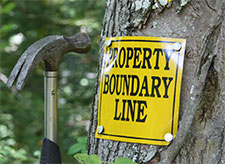 The collection practices of HOA collection vendors have come under increased scrutiny over recent years. For example, we have written about how California courts have struck down a vendor’s ability to reject partial payments. Those actions resonated throughout the HOA industry and resulted in significant changes to the approaches taken by collection vendors when pursuing the debt owed to their HOA clients. The most significant changes however have come in response to attacks made against collection vendors that operate under a “no cost” collection model. We have also written about this issue and how the “no cost” collection model results in liability exposure for violations of the California Civil Code as well as applicable state and federal fair debt collection laws. To our surprise, despite the actions that collection vendors have wisely taken to shift away from the “no cost” model, we are still seeing instances where a HOA has opted to utilize the services of a “no cost” collection vendor without understanding the substantial risks of doing so.
The collection practices of HOA collection vendors have come under increased scrutiny over recent years. For example, we have written about how California courts have struck down a vendor’s ability to reject partial payments. Those actions resonated throughout the HOA industry and resulted in significant changes to the approaches taken by collection vendors when pursuing the debt owed to their HOA clients. The most significant changes however have come in response to attacks made against collection vendors that operate under a “no cost” collection model. We have also written about this issue and how the “no cost” collection model results in liability exposure for violations of the California Civil Code as well as applicable state and federal fair debt collection laws. To our surprise, despite the actions that collection vendors have wisely taken to shift away from the “no cost” model, we are still seeing instances where a HOA has opted to utilize the services of a “no cost” collection vendor without understanding the substantial risks of doing so.
As nonprofit corporations with fixed budgets, the idea of a “no cost” collection model is certainly attractive to HOAs. Under a “no cost” model, the collection vendor does not charge the HOA any upfront fees or costs for the collection services it performs, but rather collects those amounts directly from the delinquent homeowner. However, in doing so, the United States Bankruptcy Court in California first noted how this approach violates applicable provisions of the Civil Code, and further “opens the door to all sorts of mischief, as an HOA has no incentive whatsoever to question costs for which it is not liable and no incentive to search for services charging more reasonable costs.” (In re Cisneros, (Bankr. N.D. Cal. 2012), (“Cisneros”).) That rationale was underscored in the most recent attack on “no cost” collection models put forth in the case of Hanson v. JQD, LLC d/b/a Pro Solutions, (N.D. Cal., 2014) (“Hanson v. Pro Solutions”).
In Hanson v. Pro Solutions, a HOA hired a collection vendor (“Pro Solutions”) operating under a “no cost” model. California Civil Code § 5650 allows for a HOA to recover reasonable costs and attorney’s fees “incurred” by the HOA in collecting delinquent assessments. However, Pro Solutions’ “no cost” model did not result in the HOA incurring any fees or costs for Pro Solutions’ services. Rather, the fees and costs charged for Pro Solutions’ services were never billed to the HOA but were instead billed directly to the delinquent homeowner. The plaintiff homeowner alleged that this practice violated the Civil Code and federal and state fair debt collection laws, relying in part on the rationale underlying the Court’s decision in Cisneros.
The Court in Hanson v. Pro Solutions agreed with the homeowner and waived an even bigger red flag to collection vendors operating under a “no cost” model:
“Although no California appellate court has directly addressed whether, as here, a third-party vendor acting on behalf of a HOA can lawfully charge a delinquent homeowner fees not incurred by the HOA, the aforementioned authorities prompt a conclusion that Pro Solutions’ right to impose debt collection fees against Hanson extends no further than the [HOA’s] right to do the same…Pro Solutions’ fees apparently are neither incurred nor paid by the HOAs that contract for the company’s “no cost” services. If California law nonetheless entitled Pro Solutions to impose the fees of its choosing against homeowners like Hanson, the company would wield unchecked power to extract a cascade of fees and costs from a HOA’s delinquent members.”
Hanson v. Pro Solutions was settled and therefore did not result in any precedential court decision on the issue of “no cost” collection models. However, the Court’s language was strikingly clear, as was the warning it sent to HOAs and collection vendors. Even though the HOA was not named as a defendant in Hanson v. Pro Solutions, there is nothing to prevent a HOA utilizing a “no cost” collection vendor from being named as a defendant in a similar suit and thus exposed to significant liability.
| HOA Boards and management professionals must recognize that, regardless of what type of entity a HOA uses to collect delinquent assessments (an attorney, third party collection agency, etc.), there will be fees and costs associated with their collection services, and that the HOA must pay for those services in order for them to be incorporated into the debt that is recovered from the homeowner. This incentivizes collection vendors to provide services that are not only effective, but cost-efficient, and in doing so helps protect the financial interests of HOAs as well as homeowners who may fall behind on their assessment payments. |
 HOA Lawyer Blog
HOA Lawyer Blog


 We are proud to announce that Tustin Field II Community Association has selected Tinnelly Law Group as their associations’ legal counsel.
We are proud to announce that Tustin Field II Community Association has selected Tinnelly Law Group as their associations’ legal counsel. Once again the first of the year brings new legislation impacting common interest developments. The passage of
Once again the first of the year brings new legislation impacting common interest developments. The passage of  We are proud to announce that Robertson Ranch West Village Owners Association has selected Tinnelly Law Group as their associations’ legal counsel.
We are proud to announce that Robertson Ranch West Village Owners Association has selected Tinnelly Law Group as their associations’ legal counsel. California is experiencing the worst drought in over a century. As a result, the California Legislature has enacted a number of laws aimed at water conservation. Existing law requires the
California is experiencing the worst drought in over a century. As a result, the California Legislature has enacted a number of laws aimed at water conservation. Existing law requires the  We are proud to announce that Wallis Ranch Owners Association has selected Tinnelly Law Group as their associations’ legal counsel.
We are proud to announce that Wallis Ranch Owners Association has selected Tinnelly Law Group as their associations’ legal counsel.
 The California Air Resources Board (“ARB”) passed a regulation (“Regulation”) that requires diesel trucks and buses that operate in California to be upgraded to reduce emissions. The Regulation has a direct impact on HOAs and requires them to take steps to verify that certain vehicles they hire are properly certified with the State. The Regulation requires lighter and older heavier trucks to be replaced starting January 1, 2015. By January 1, 2023, nearly all trucks and buses will need to have 2010 model year engines or equivalent.
The California Air Resources Board (“ARB”) passed a regulation (“Regulation”) that requires diesel trucks and buses that operate in California to be upgraded to reduce emissions. The Regulation has a direct impact on HOAs and requires them to take steps to verify that certain vehicles they hire are properly certified with the State. The Regulation requires lighter and older heavier trucks to be replaced starting January 1, 2015. By January 1, 2023, nearly all trucks and buses will need to have 2010 model year engines or equivalent. We are proud to announce that Sage Canyon Maintenance Corporation has selected Tinnelly Law Group as their associations’ legal counsel.
We are proud to announce that Sage Canyon Maintenance Corporation has selected Tinnelly Law Group as their associations’ legal counsel.